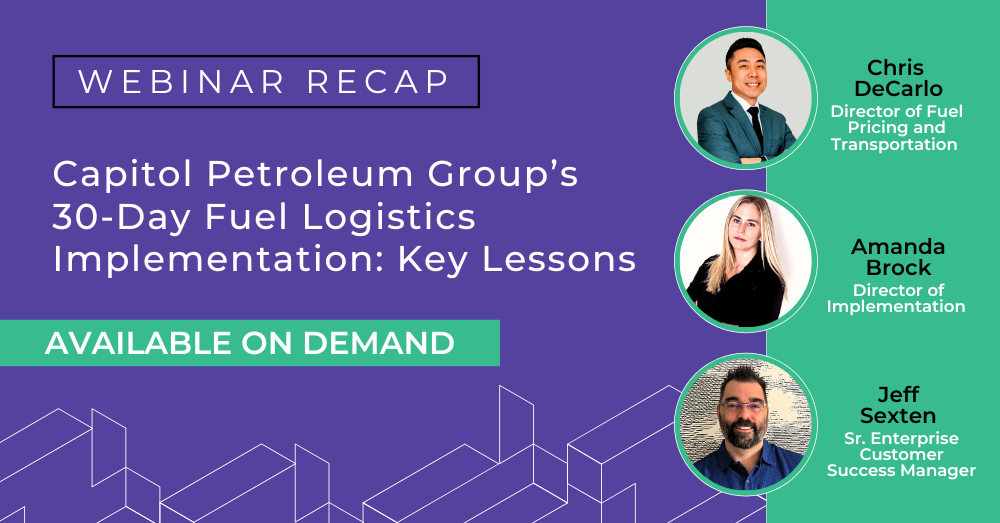
Webinar Recap: Key Lessons from CPG’s 30-Day Fuel Logistics Implementation
During our recent webinar, Titan Cloud’s VP of Data Science, Adi Raz, and Director of Solutions Consulting, Nick Viola, revealed how embracing new technology can transform your business from reactive to proactive.
Watch the on-demand replay to discover how data science and AI can give you an edge.
For decades, fuel demand kept climbing. However, today, that’s no longer the case. Growth has slowed, and profitability now depends less on volume and more on efficiency. Think about it:
Fixed Assets, Shrinking Demand: Like airlines or hotels, gas stations are high-cost, fixed assets. But unlike those industries, the fuel business faces declining volumes. This means you can’t afford to be inefficient. Every unnecessary delivery, every overstocked tank, and every minute of driver overtime cuts into your bottom line.
Exponential Complexity: The decisions you face, like optimizing loads and routes for a fleet of trucks, are exponentially more complex than they appear. A few extra trucks or drops can turn a simple problem into a matrix of thousands of possibilities that human-based linear programming can’t solve.
AI isn’t about replacing people. It handles the mind-numbing, complex calculations so operators can focus on what they do best: making smart, high-level decisions.
Our webinar highlighted three key areas where AI delivers immediate impact:
Data science isn’t replacing human expertise; it simply feeds smarter decisions by the people who leverage it. Fuel operators who partner with providers who treat data quality as a core discipline by validating constantly and evolving their models can build a business strategy based on reality, not assumptions.
With the right tools, guesswork disappears, manual tasks shrink, and every decision supports a more efficient and profitable business. Watch the webinar replay for a closer look at how technology is transforming supply and logistics. And if you’d like to talk to a Titan Cloud solutions consultant about how we can help you boost efficiency and improve operations using fuel analytics, reach out to us here.
